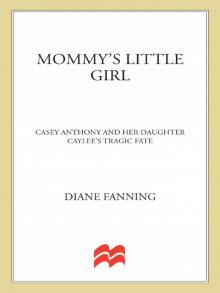- Home
- Diane Fanning
Bitter Remains Page 7
Bitter Remains Read online
Page 7
Laura went on the defense about allowing the boys to play in the snow and blaming him for their son’s illness. “You criticize me constantly, taking a GRAIN of truth and building a pearl of crap around it. . . . I have put up with your need to degrade and manipulate people to feel better about yourself for several years against my better judgment.” She wrapped up her message with a request that he help out financially with health insurance for the children. She reminded him that the judge would view that as a positive contribution to the boys’ welfare.
Grant refused, saying that the insurance cost more than it was worth and all his money was being spent on the custody case, rent, food, toys, clothing and medical bills. “And you want me held in contempt of court for not having more money to pay Calloway? I grew up poor in Kinston and it sucks. My kids will not live that way. This is their only childhood. Grant will be three soon. His whole life has been mommy and daddy fighting. . . . You got some real stuff you need to deal with. You got a raw deal when you were their age and you are trying your damnedest to make sure your kids get one, too. That’s bad karma, Laura. . . . I was weak and let you intimidate me, exploit my guilt and hold my failed marriage over my head. . . . One of my biggest mistakes was not showing your hateful, twisted, childish spirit to the door sooner.” He went on to shred Laura’s character to bits with allegations of promiscuous and crude behavior.
Laura’s response to his lengthy tirade was brief and to the point: “I am literally LAUGHING right now. Thanks! I’m done, Grant, DNR [Do Not Resuscitate].”
But when Grant questioned what she wrote and accused her of creating drama, Laura wrote again asking if he believed his own lies and begged him to stop spreading them. She ended with: “Grant, I’ve spent too long in conversations like this. Go talk to your wife.”
Grant wouldn’t let it go. He poked at her with every stick he could find. Despite Laura’s expressed desire to terminate the conversation, she kept responding like a cornered animal.
The acrimonious exchange finally came to an end when Laura wrote that his messages and attitudes were proof of why a psychological evaluation was necessary and urged him to turn in the required paperwork. “E-mail me about our boys, not our case, not our past, not your conquests. Bye.”
—
ON February 12, 2011, Grant was still trying to repair his online image. He wrote to musician Frankie Goodrich via Facebook, pleading for his help to get rid of any images that showed him under the influence or engaged in any illegal or questionable activity that the courts might view as unacceptable or inappropriate. He said that he had serious problems with the custody case and the IRS was on his back for his 2009 earnings.
Five days later, another friend complimented him for the photo of his family on Facebook saying that his kids were beautiful but “this clearly isn’t the wife we met, right?”
Grant responded to her, referring to Laura as a “hanger on” and said he met Amanda in St. John. He complained again about the custody battle: “We been in court for a year, it’s hard on everybody. She’s just gold diggin’ and thinks these kids are her ticket.”
On February 7, 2011, at Grant’s urging, Sha moved out of her mother’s apartment and into another unit at the opposite end of the complex.
—
A few days later, Heidi Schumacher brought Laura and Oksana Samarsky together at Reader’s Corner on Hillsborough Street in Raleigh. Heidi thought Oksana was a fantastic artist and Laura was a marketing whiz. “I thought they would hit it off and they could help each other,” Heidi said.
Laura brought the boys with her, and as the women talked, Gentle and Grant crawled all over her. Oksana thought the bubbly mother made a good first impression. As Heidi predicted, the two became very quick friends. Oksana felt a bit like Laura’s side project but was grateful for the other woman’s belief in her talent and willingness to help her succeed. They e-mailed and phoned for the most part—occasional face-to-face meetings did happen, but only when the two women could juggle often conflicting schedules of school and work demands and within the confines of Laura’s first priority, her boys.
The casual and flexible relationship worked well for both women until everything went horribly wrong.
CHAPTER TEN
DR. Ginger Calloway next wanted to evaluate how the Hayes children reacted when a parent left and came back. At the child trauma center, they set up the scenario. First the parent played with the child in a playroom. Then, a stranger went in and talked to the parent and child together for about two minutes. At that point, the parent left, but returned again in two to five minutes. Then the stranger left and parent and child played together again. After that, the child was left alone for a few minutes before the parent came back in again.
When Laura Ackerson arrived with the boys, Gentle was asleep. He was left in Heidi Schumacher’s care in the waiting room while Laura and little Grant went into the playroom. Mother and son interacted well together. When Laura left the room, little Grant kept asking, “Where’s Mommy?” When she returned, he gave a sigh of pleasure.
When Gentle first woke up in that strange place, he screamed. When he was left with the stranger in the playroom, he seemed unsure of what to do. He went to the door and rested his head on it. Then, he started to wail and couldn’t be comforted by the stranger. Because of his distress, Laura was brought back in right away. Laura easily calmed him and seemed attuned to his needs.
On a later day, Grant Hayes repeated the scenario. When his father returned to the room after an absence, little Grant showed no reaction. He continued playing with the cars and then noticed that his dad was getting blocks out of a box. He said, “Put more, Daddy.”
Grant said, “More what?”
“More blocks.”
The session with Gentle started playfully, with Grant mimicking Gentle. The boy then explored the room and had little interaction with his father. When Grant said his name, Gentle ignored him. Grant urged him to come look at one toy after another. Gentle would look at the toys then take them to another part of the room and play by himself. When the stranger came into the room, Gentle sat down by his dad’s feet.
When Grant left the room, Gentle cried. But when his father returned, they did not have a reunion. Grant immediately went to the toys for a distraction. When he left the boy alone, Gentle whimpered. With his father gone, Gentle continued to stand near the door, making those pitiful noises. The stranger came in and was able to soothe him for a little bit. When Gentle’s whimpering began anew, the stranger tried to engage his interest in toys. When Grant came back into the room, Gentle tried to escape.
—
ON the first day of March 2011, Laura chastised Grant via a string of text messages asking him to demonstrate a modicum of respect for her phone time with the boys.
Grant asked what she wanted him to do and Laura wrote: “Something other than what you are now. The few times that your group have called here, I have kept it quiet and non-distracting. Not only is it rude to constantly have the TV on when I’m trying to talk with Grant and Gentle, but it makes you guys look bad to anyone who hears the recording of the call. Could you please give it a rest and work with me here? WE have two children. Not you. WE. I will always be their mom and its best if they have a healthy relationship with me. Could you encourage that please?”
Laura did not seem to blame Amanda for these problems. A few days after her exchange with Grant, she sent Amanda a thank-you note expressing appreciation for all that Amanda did in the day-to-day caring for the children. Although she didn’t mention it in the correspondence, Amanda’s presence in the household made Laura feel more comfortable than she would have if the boys were in Grant’s care alone.
—
LATER that month, at HealtHabit, Laura helped a customer named Chevon Mathes, an African-American woman with a full, attractive smile, broad face, high cheekbones and a soft voice. The two women chatted, and they
discovered that they shared a conceptual vision. Both independently wanted to start an advertising company selling noncompeting ads on placemats or menus at diners and cafés. Chevon had business sense and a sales instinct and Laura had graphic design skills. It was like two halves of a whole. They exchanged phone numbers that day. Later they talked on the phone and met face-to-face, both growing more excited about the possibility with each encounter. They shaped their dreams into a start-up called Fork & Spoon and started looking for customers. In addition to her job at the shop, Laura continued with her freelance work as GoFish Graphic Designs while she worked on building a new business with Chevon.
Laura and Chevon had two types of sales calls to make. One group was the restaurant owners whom they had to solicit to use the free menus or placemats with ads for other businesses. The others were those companies buying the ads to make the freebies possible. Soon, Laura quit her part-time job at the health food store. Their business started in Kinston in March and by the time July 2011 arrived, they’d expanded to Wilson, with Laura making pitches there and in Goldsboro while Chevon tried to get sales by telephone since she did not own a car.
Chevon spent time working with Laura in her two-bedroom apartment and soon became aware of the ongoing custody battle and Laura’s conflicts with Grant.
—
MEANWHILE, back in March, Grant had filed a social-services complaint against Laura because of bruises on the boys. The caseworker was confused about why Grant also told him that Laura had sexually transmitted diseases, since it was not relevant to his original allegations. The agency investigated and discharged the case as groundless.
Laura assumed that Grant had filed the report in the first place because the evaluation was not going as he’d hoped. Laura told her lawyer, John Sargeant, that she was afraid that Grant’s actions indicated he was getting desperate, and she was concerned he might try to run off with the children or do something bad to her. Sargeant urged Laura not to take any unnecessary risks, and to always meet Grant in a public place. He told her that if Grant ran with the boys, in all likelihood she would be awarded full custody—but she’d have to go through a lot of trouble to find him and get her children back.
In mid-March, Grant wrote again to the friend he’d griped to in February, and his bitterness appeared to have escalated. After answering questions about his music, he complained: “My x started a ridiculous custody dispute over our two sons. I mistakenly came down to NC to answer the hearing and the court ordered I couldn’t leave the state with my boys even though I paid $40,000 to get into my place in New York City. Down the drain.” He said that he couldn’t get gigs in Raleigh and that they were living off their savings and having to pay eighty-five thousand dollars to attorneys, evaluators and psychologists.
“We’ve gone from having financial security to allow my wife and I to stay home all day, to selling jewelry just to keep the lawyers on the case and the lights on.” He said that he’d considered gigs in St. Lucia and Hawaii but he hated to be away from his little boys and his pregnant wife. “I’m dedicated to the arts, been full-time earning a living with my guitar since I was 19 years old.”
He told her his dream was to be a songwriter. “I love to write songs and don’t do anything 99%. I go all the way.”
—
THAT April, Sha went up to Amanda and Grant’s apartment and found her mother sitting on the bathroom floor bawling. Amanda said she felt trapped. She had no options and her money had all “gone down the drain.” Seven months pregnant, and all she could do was wail. “I don’t want to be a single mother at forty but there’s no way he can ever take care of me or these kids. He doesn’t need to have these boys if I’m not here,” she told her daughter.
Grant did nothing to dispel this concern. In May, despite his wife’s advanced state of pregnancy and her imminent due date of May 31, Grant left Amanda to take care of his children on her own and flew to Hawaii. He stayed with his friend Lauren Harris’s fiancé while he was in the islands. Amanda thought he had booked a few gigs, but according to Lauren, Grant just went out looking for the possibility of work.
Grant was still in Hawaii on Mother’s Day. Sha and her new boyfriend, Matt Guddat, a man more than twelve years her senior, took Amanda out to brunch that day. It was the first time Amanda and Matt had met.
Others were more sensitive to Amanda’s needs in her current state. Her in-laws transported the boys for her on one occasion. Laura, too, volunteered to pick up the boys in Raleigh during Grant’s absence. Grant obviously didn’t understand or subscribe to the notion that the needs and desires of his partner were as important as his own. He continued to display the same self-obsessed, callous characteristics in this relationship as he had in the past.
CHAPTER ELEVEN
ON May 17, 2011, Dr. Ginger Calloway sent her final report to both attorneys as well as a sealed copy to the judge, which would not be opened until it was properly presented in the courtroom. Laura Ackerson met with attorney John Sargeant the next day to review the fifty-nine-page document.
In the report, Calloway noted that Grant Hayes and Laura both had chaotic personal histories. Both had had trouble with relationships, including the one with each other, which was volatile and destructive.
Calloway noted that she found no evidence that Laura was mentally ill, and no support of Grant’s claims that his ex was “sick” or that she “poisoned the children’s minds.” However, Calloway wrote, Laura “is defensive and comes across as tense and stiff during interviews. She has not learned to successfully balance appropriate self-disclosure and a need to be private. . . . Her tenseness, reserve and careful manner could lead others to mistrust her and to question the accuracy of her reports. Her uncertainty and lack of self-assurance caused her to appear to be vacillating or ‘flip-flopping’ as Grant describes her. This is an accurate and perceptive comment about her. . . . She is less mature than other adults and is easily overwhelmed, relative to other adults. She is a chronically vulnerable or fragile person with a poorly developed sense of self that she defends in impulsive emotional ways at times. . . . When she is overwhelmed she can and has shown poor judgment at times and she will act impulsively without consideration for consequences.”
About Grant, Calloway wrote: “His rambling and tangential thinking included excessive negative commenting about Laura” and noted that his anger toward Laura and his inappropriate “characterizations of her make him appear to have a determined agenda.”
Calloway continued: “It is concerning when Grant goes on the attack against Laura and portrays her in a highly negative and morally depraved ways. His upbringing in what he describes as fundamentalist family where guilt was used freely for control is likely the source of his rage at Laura.
“He also fails to understand the impact . . . of his angry rantings about Laura . . . in front of the children. This is very worrisome for parenting and for what he is willing to communicate. . . . It is disturbing that his intense rage serves as an anchor for his disturbed thinking.
“Grant and Amanda were unequivocal about wanting to leave the area while, at the same time, they said they planned to buy a house in Raleigh. Both have said repeatedly that they want to travel out of the country and to far-flung places like Hawaii, Europe, Sweden, India or China. Grant says he would like to get a boat and sail to Greece and ‘live before I get too old.’ He said he ‘wanted his kids to be citizens of the world and not just the U.S.’ Amanda reports they wanted to move to Nashville, Tennessee, because Grant is a songwriter . . . ‘As a family it is important for us to travel with him. It wouldn’t be fair if me and the baby get to travel and they don’t.’
“With these kinds of expressed wishes of Grant and Amanda to move away, it is obvious that they do not want Laura included in the children’s lives. This is very concerning because in essence, they want to obliterate her.”
In the analysis, Calloway stated: “There are several areas whic
h are highly significant with regards to findings from this evaluation that are necessary for the court to have. These concern the disruption of the children’s relationship with their primary caregiver, their mother, an understanding of the parents’ separate pathology, the chaotic and destructive nature of their conflict. Grant’s misinterpretations that are passed on as totally accurate and factual to authority figures who can pass judgment on Laura and Laura’s underdevelopment that causes her to become defensive rather easily are significant findings. It is critical that the court be informed regarding the insensitivity of Grant and Amanda and the paternal grandparents regarding the children’s deep need for an unalterable bond with Laura . . . and Grant’s stated opinion that he should have total control through legal and physical custody of the children with supervised visitation only for Laura.”
She summed up: “The most significant finding to emerge from this evaluation is the description to the relationship with their primary caregiver, their mother. For a variety of reasons both children spent the majority of their time with their mother during the critical age periods for attachment formation . . . Laura was primarily the individual immediately available to both the children when they cried, to rock them or otherwise assist them to sleep and the parent most immediately available to meet the needs of hunger, discomfort, wet, dirty, upset, pain, pleasure, joy, light, competence.”
Calloway noted, “When taken to New York City in February 2010, Grant IV was abruptly removed from his primary caregiver at 21 months of age. . . . Gentle who was nursing at the time, was abruptly removed from Laura’s care at roughly ten months of age. About two weeks after the transition to Grant’s home, Gentle underwent surgery. The importance to Gentle of his father’s absence as a routine caregiver from roughly two months of age to roughly ten months of age is critical in terms of attachment relationships and in terms of his transition to his father’s home. His father simply was not present for the attachment process to occur. Hence, he was a virtual stranger to Gentle and therefore, not someone Gentle could rely on when he was transitioned to Grant, Amanda and Sha.”

 Death on the River
Death on the River Bitter Remains
Bitter Remains Gone Forever
Gone Forever Sleep My Darlings
Sleep My Darlings A Poisoned Passion
A Poisoned Passion Through the Window: The Terrifying True Story of Cross-Country Killer Tommy Lynn Sells (St. Martin's True Crime Library)
Through the Window: The Terrifying True Story of Cross-Country Killer Tommy Lynn Sells (St. Martin's True Crime Library) Chain Reaction
Chain Reaction Baby Be Mine
Baby Be Mine The Pastor's Wife
The Pastor's Wife False Front (Lucinda Pierce)
False Front (Lucinda Pierce) Under Cover of the Night
Under Cover of the Night Sabotage in the Secret City
Sabotage in the Secret City Written in Blood
Written in Blood Treason in the Secret City
Treason in the Secret City Wrong Turn
Wrong Turn Under the Knife
Under the Knife Mommy's Little Girl
Mommy's Little Girl Scandal in the Secret City
Scandal in the Secret City